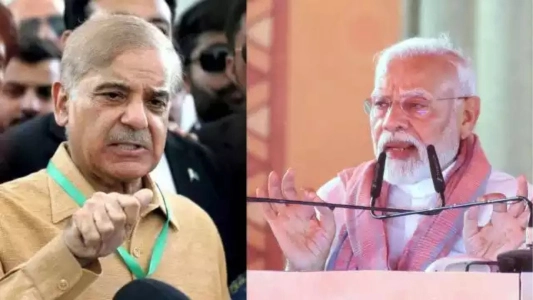Table of Contents
In a chilling development that has rocked the region, India’s security apparatus is once again under scrutiny following the Pahalgam attack in Jammu and Kashmir. The attack, which claimed 26 innocent lives, has once again highlighted the deep-rooted and complex tensions between India and Pakistan. What makes this incident even more alarming is the potential role of Pakistan’s military interests behind such cross-border provocations.
The Pahalgam attack is seen as part of an ongoing pattern where military and economic interests in Pakistan seem to converge, with grave consequences for India and the entire region. This is not the first time that Pakistan’s army has been linked to military operations and terrorist activities across the border. However, what many fail to recognize is how the Pakistan Army’s business ventures might be influencing these actions.
Pakistan Army’s Strategic Influence Through Economic Ventures
Beyond its military role, the Pakistan Army has steadily expanded its presence in the economic landscape of the country. Through entities like Fauji Fresh n Freeze, a conglomerate owned by the military, the army has invested heavily in various sectors, including agriculture, manufacturing, and even retail. This economic foothold grants Pakistan’s military significant leverage, not just in terms of control over Pakistan’s national defense, but also over its political and economic directions.
Experts argue that this commercial influence of the military may play a role in its ongoing aggressive stance against India, particularly in Jammu and Kashmir. As the military continues to exert its influence through both economic and military ventures, it risks using provocations like the Pahalgam attack to further its political and economic control within Pakistan.
The Pakistan Army’s Hidden Agenda: Economic Power and Military Tensions
The Pahalgam attack update brings forth an uncomfortable truth: many of the military operations launched by Pakistan against India are often not merely about territorial or ideological disputes but also tied to internal politics. Pakistan’s army, which controls an alarming amount of Pakistan’s economy, has long used cross-border tensions to consolidate power both within the military ranks and within the broader political sphere.
The involvement of the Pakistan Army in such incidents may be seen as a tactic to escalate tensions with India, diverting the public’s attention away from Pakistan’s internal challenges. The attack could very well be a signal from the military to showcase its dominance and reassert its control over Pakistan’s defense and foreign policy.
Rising Concern Over Regional Stability
The international community is growing increasingly concerned about the growing instability in South Asia. The Pahalgam attack not only inflames India-Pakistan relations but also puts Kashmir back into the global spotlight. The frequency of such incidents is a clear indication of how easily the delicate balance of peace can be shattered in the region.
This volatile situation underscores the need for greater diplomatic intervention to address the role of Pakistan’s military in fanning the flames of cross-border conflicts. With the Pakistan Army holding such sway over Pakistan’s politics and economy, any external conflict, including military skirmishes with India, serves to reinforce its central role in the governance of Pakistan. This, in turn, makes resolving the India-Pakistan conflict even more complex.
The Complex Web of Military, Politics, and Economy
The attack in Pahalgam serves as a reminder that the situation in Jammu and Kashmir is not just a territorial dispute; it is also part of a larger power struggle that involves Pakistan’s military interests in both the economy and military activities. As Pakistan continues to back insurgency movements in Kashmir, it is clear that its army’s business ventures offer more than just financial benefits; they also provide a means to exert influence over internal and external policies.
The Pahalgam attack has brought this complex reality to the forefront, as India faces increasing threats from a neighbor whose military is deeply embedded in both the country’s political sphere and business world.
Conclusion: Rising Tensions and the Need for Dialogue
As tensions continue to rise between India and Pakistan, the Pahalgam attack serves as a stark reminder of the underlying complexities at play in the region. It underscores the urgent need for not just military preparedness, but also diplomatic engagement to address the multifaceted nature of the India-Pakistan conflict.
For now, India remains on high alert as it prepares for any further provocations, while the international community watches closely, hoping for a diplomatic resolution to ease the persistent tension that threatens regional peace.
Stay updated with all the latest India news and breaking updates only at The Instant News — your go-to source for real-time and in-depth news reports.


